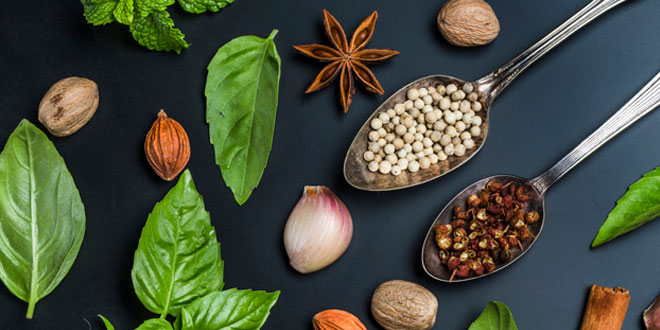Question: Why are leaves called the food factories of plants? Explain.
Answer: Leaves are called the food factories of plants due to following functions:
- Green leaves have all the raw materials necessary to carry the process of photosynthesis.
- They have chlorophyll (green pigment) which captures the energy of sunlight.
- Leaves consist of tiny pores called stomata on their surface.
- Carbon dioxide from air is taken in through stomata.
- Water and minerals are absorbed by the roots from the soil and transported to the leaves by vessels.
Question: What are stomata? What is their role?
Answer: Stomata are the tiny pores present in the surface of leaves. Massive gaseous exchange takes place in the leaves through stomata for the purpose of photosynthesis and respiration.
Question: In which form nitrogen is taken up by the plants?
Answer: The nitrogen is taken either in form of inorganic nitrates or nitrates or organic compounds which have been prepared by bacteria form atmospheric nitrogen.
Question: What do you understand by symbiotic relationship between organisms?
Answer: Some organisms live together and share shelter and nutrients. This is called symbiotic relationship. For example, certain fungi live in the root of trees. The tree provides nutrients to the fungus and, in return, receives help from it to take up water and nutrients from the soil. This association is very important for the tree.
In organisms called lichens, a chlorophyll containing partner, which is an alga, and a fungus live together. The fungus provides shelter, water and minerals to the alga and in return, the alga provides food which it prepares by photosynthesis.
Question: Some plants are both parasite and saprophyte. Explain with examples.
Answer: There are some plants which survive like parasites as well as saprophyte. For example, Lichen. In lichen algae which is green in colour and lives on the upper side of the plant in the sun and prepares its own food during photosynthesis. The lower part of lichen is fungus which is saprophyte in nature. Both live together in it.
Question: What are the essential conditions in which photosynthesis takes place?
Answer: The essential conditions for photosynthesis are:
- Green parts of the plants (i.e.,presence of chlorophyll).
- Presence of sunlight.
- Presence of carbon dioxide.
Question: Is ‘nutrition’ a necessity for an organism? Discuss.
Answer: Food is required for the following purposes:
- It provides energy for the various metabolic processes in the body.
- It is essential for the growth of new cells and repair or replace worn out cells.
- It is needed to develop resistance against various diseases.
Question: What would happen if green plants disappear from earth?
Answer: Green plants are the sources of energy for all organisms. If all green plants disappear from the earth, all the herbivores will die due to starvation and so will the carnivores.
Question: How does the fungus get its nutrition?
Answer: Fungus is a saprotroph. Its mode of nutrition is called saprotrophic mode of nutrition. It takes its food from dead and decaying matter. The digestive juice of fungus converts the dead materials into solution. Then it absorbs nutrients from it.
 Class Notes NCERT Solutions for CBSE Students
Class Notes NCERT Solutions for CBSE Students



It was a nice experience